Four Play: An interview with playwright Jake Brunger
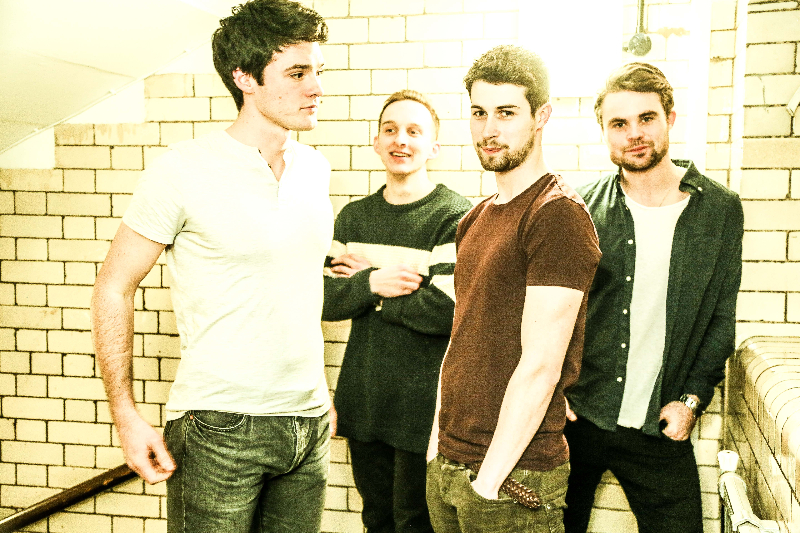
The Upcoming recently caught up with British playwright Jake Brunger (whose most recent works include Prodigy and a stage adaptation of The Secret Diary of Adrian Mole) to find out more about his new production, Four Play. Normally a writer of musicals, Brunger has brought out Four Play as his first full-length play – very different territory from his previous works. The production is largely a comedy, but also attempts to shed light on some tricky modern issues around gay relationships, commitment and sex. Brunger fills us in on the motivations behind his new “state of the nation gay play”, his feelings and anxieties around dealing with its sensitive subject matter, and his experiences working on his first full-length production.
This was commissioned as “a state of the nation gay play” – what did this mean to you and how did you interpret that label?
In my very first commissioning meeting with Old Vic New Voices they sort of clarified that phrase for me actually, so I had a bit of a head start. What they were after was a play about how gay people are living right now – 2016 – in a contemporary city, like London, taking the temperature of a very specific time period I guess you could say. They originally mooted gay marriage or adoption as potential subject matters, as these have been hot on the gay agenda in recent years, but I realised that actually if you look at my generation, it’s the period before marriage that’s more interesting – between getting a boyfriend and getting married, and how you navigate those waters.
What are the most important issues that you’re trying to address in the play?
Primarily, it’s a play about commitment; how we commit and when we commit. It’s so easy for our generation to want something else because we’ve seen it on Facebook or Instagram – it’s the reason my generation are so gym and “eat clean”-obsessed I think. We wouldn’t long for an avocado bagel unless people didn’t upload pictures of them, for example, and it’s the same with relationships: why isn’t my boyfriend taking me for a romantic sunset walk in Naples? So we fixate on wanting something else, looking elsewhere, when actually it ought to be about the fundamental basics: are they good people? The fad at the moment is to date and sleep around, when actually commitment demands something very different from you, and that’s what the play looks at.
Because of the nature of the play, did you feel a certain sense of responsibility in portraying a gay relationship on stage? Were you ever nervous about this?
Absolutely, and even in doing interviews like this I’m always incredibly wary about saying the wrong thing – it’s very easy to offend someone, particularly as the phrase “gay people” spans literally millions of people. There’s no way you can ever really say “we’re like this” or “we’re like that”. There are so many points of view. But what I wanted to portray in Four Play was a different side of gay life, that these characters aren’t stereotypical gay guys – clichés if you like – but just bog-standard guys who work in normal office jobs.
Has the process of developing this production changed your perspective on any of the issues that the play discusses?
Oh yeah totally, and I think I too have changed hugely in the time since it was commissioned about two years ago; life changes fast in your twenties. It’s a play about open relationships, and whether that can work for some people. It’s not something I personally could ever go for, but I certainly get why people do.
Where did the characters from Four Play come from? Were they already clear in your mind before you worked out the plot or did they start to emerge while you were writing it?
They’re sort of an amalgamation of lots of people I know. Over the years you hear so many anecdotes, so when you come to write a play like this you have so much to draw upon. One mate had been in a relationship for five years, and one day borrowed his boyfriend’s phone to play a game, only to find a Grindr message pop up; he had no idea his boyfriend saw their relationship as open. And that’s after five years! In terms of things like character names and characteristics, they all came to me immediately when I started writing – if I can’t get a character name straight away there’s usually a problem, I find.
How did you go about making Four Play relatable to a wide audience?
Although the situation is situationally gay-specific (a gay couple proposition a mutual gay friend to sleep with them), it wasn’t until I started developing the play with straight actors and straight creatives that suddenly people were saying to me “these issues are completely universal.” That fear of commitment, settling down, and who you’re with is relatable to everyone; it’s not gender or sexuality specific. I’m genuinely so pleased that it seems to appeal to everyone. That’s how I like my writing to be: something for everyone.
As someone who has a lot of experience with musicals, how does the process of playwriting compare?
They’re totally different beasts. I guess the primary thing is that there’s no collaborator in the room when you’re writing a play. For musicals, however, I write with a composer called Pippa Cleary, and we do the lyrics together, so most of what we write comes together in the room – I will read a scene aloud, she starts playing the piano and then we launch into shouting random lyrics out loud to see what fits the tune (we record all our sessions, as these initial play-throughs tend to yield the best, most instinctive work, albeit often very odd!). And then with musicals during the writing process you add in directors, choreographers, MDs, orchestrators – the work changes before it’s even at the rehearsal draft stage. Whereas, as a playwright, you, the writer, have so much more authority until you get into the rehearsal room. You take it in to the director and it’s your vision that they tend to serve.
What do you hope people will take away from seeing Four Play?
We open just after Valentine’s Day, so I love the idea of people coming to this with that fresh in their minds and questioning their own relationships. I’m hoping people might wonder – as the characters in the play do – whether they’re with the right person or not, although I hope it doesn’t freak anyone out too much… I’d hate to cause break ups!
This is your first full-length play – what are your plans for the future and your next full-length production?
I’m writing a couple of screenplays at the moment actually, which is very different writing for theatre. If you want to go to another location, you can go there! For five seconds! One of those is slated to shoot later this summer, casting permitting, so that will be nice if it goes ahead. Other than that, I go straight from Four Play into the recording studio to record the original cast recording of my musical Prodigy, which ran at the St James Theatre last year. I can’t wait to get the cast back together and hear them sing it again – it was a really special show for me, and I’d love it to come back one day, although it does need 27 actor/musicians, which is quite an ask!
Jo Rogers
Photo: Jack Sain
Four Play is on at Theatre503 until 12th March 2016, for further information or to book visit here.

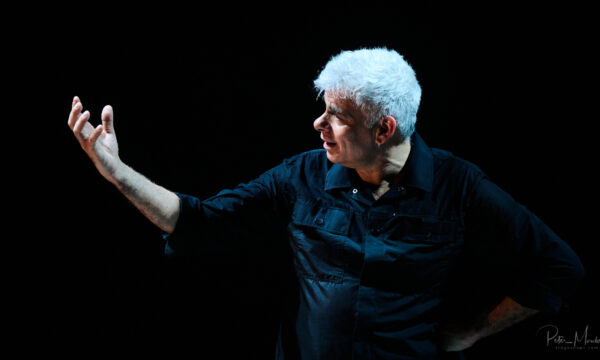
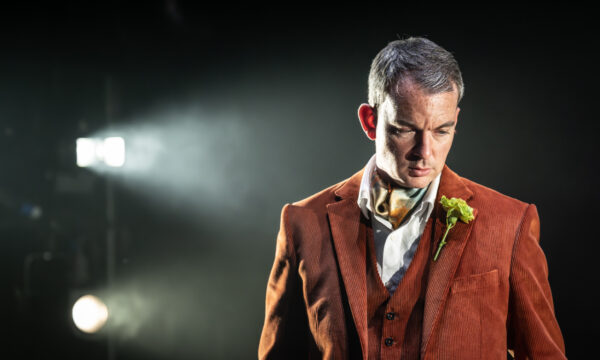
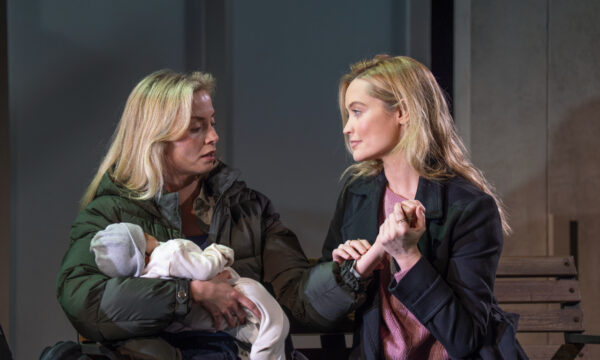
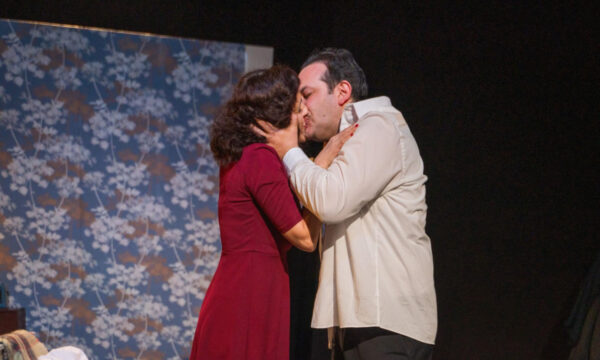
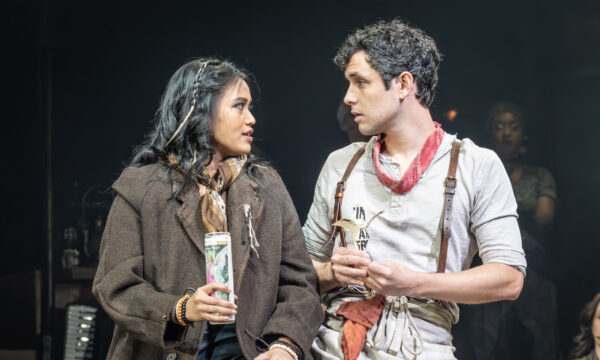
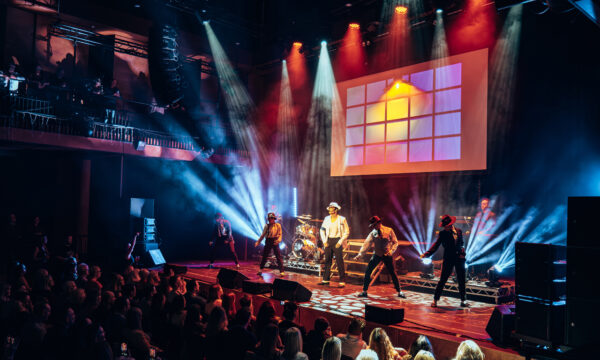
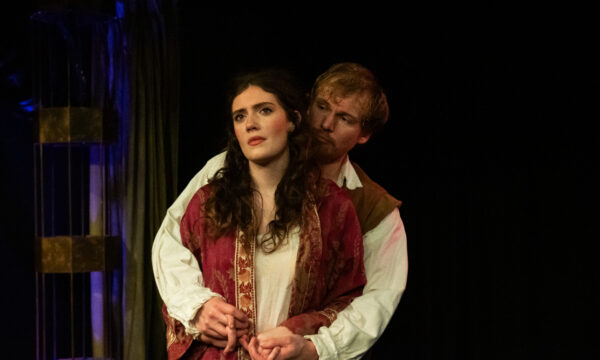
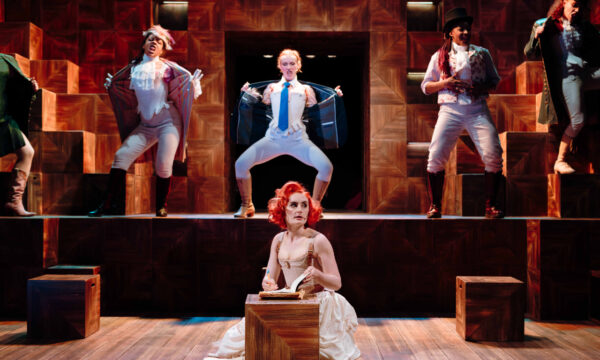
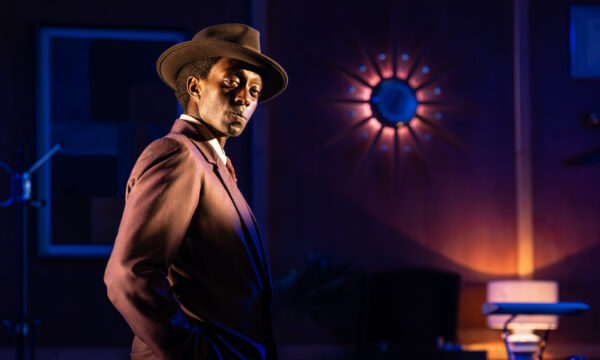










Facebook
Twitter
Instagram
YouTube
RSS